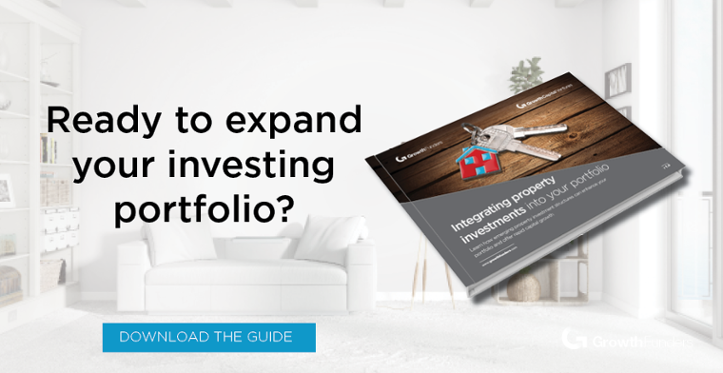Why is property still such an attractive investment proposition?
Earlier this week Dan published a post on property investments and how, according to a survey by the Office for National Statistics (ONS), they're the most favoured of all investment choices by UK adults when it comes to get the most from your money.
But why is this the case?
We're in the midst of a housing crisis. The tax reliefs associated with the ever-popular buy-to-let route are changing. Many may think now isn't the time to get into property.
But property is an asset class that has historically delivered strong returns for UK investors. For residential property, there's an imperative need to construct homes sufficient to meet continued growth in demand. This alone can help you start to understand why it's a popular option.
There is an increasing consensus that inflated house prices are damaging to the UK economy, too. The government recognises this and has committed to respond. The most tangible evidence to support this is the commitment - discussed both in the government's 2017 Housing White Paper and subsequently in the 2017 Autumn Budget - to increasing housebuilding to c300,000 homes by the mid-2020s.
300,000 homes per year represents a 77.9% increase on the 2015/16 figure. Clearly the scale of the challenge should not be underestimated.
But with this challenge comes opportunities - multiple opportunities in fact - to become involved as an investor.
Investing in property for growth or income
People’s motivations to invest tend to change depending on what stage of life they are. Some investors choose to invest in to property for a growth-focused return over a long period of time, whilst others invest for an income over a shorter period.
Investing in property has so much variety, however, that it can allow you to achieve either growth or income focused returns. This is a particularly appealing aspect for the asset class and one that's not often seen with others.
Importantly, the opportunities that fall under each of the two umbrella areas can both be fantastic and successful investors have benefited from each, and will undoubtedly continue to do so.
In essence, when you're looking to invest into growth-based opportunities, you're investing with a view to seeing a return over a period of time. This would generally be at least several months, but could realistically be many years.
A perfect example of this is a residential development project, one whereby you invest at the stage of buying land and generally don't see a financial return until the houses have been built and sold. A typical term of investment can be as little as 18 months through to a few years, and you can generally expect a return of between 1.2x and 2.0x money.
Conversely, investing in property opportunities that are income-based have the opposite focus and rather than producing a return only after a period of time, they deliver what's often a smaller return, but on a much more frequent basis. Rental properties are a perfect example of this - you buy the property, let it out and see a regular yield by way of the rental income from tenants.
Making a significant return
Yet regardless of your preference for growth, income or both, it's entirely possible to see an attractive rate of return from the right property investment opportunities.
The clever investor who spots the right opportunities to buy in the UK could, realistically, generate a high enough income to retire early. It's also not unusual for a well chosen property portfolio to rival a salary, and it can require little to no effort - unless you want to be directly involved.
Making investments in to residential development projects, for instance, enables an investor to take a property developer role, but without the much needed experience to value, engineer and plan to maximise the potential return.
In general, property investment is an attractive solution for individuals looking for ways to make their money work harder for them; where they want to have the potential to earn more than 1% or 2% on their money.
It can generate more substantial returns than more traditional forms of investing such as stocks, equity or bonds. In the UK for example, property prices have on average doubled every 6-9 years over the last six decade. There are very few investments to date which have the potential to generate such significant returns on capital, hence why property often stands out as such an attractive investment proposition.
A safe investment
And whislt any investment carries risks - this isn't something we hide; it's a simple fact of investing - historically, property is a much safer choice for your money compared to other asset classes.
The 2007 crash made its mark in almost every investment sector, but UK residential property performed comparatively well due to the simple fact that people always need somewhere to live, and housing demand is high across almost the entire UK.
With demand comes opportunity and ambitious housebuilders can capitalise on this government commitment to enhance investor confidence in the opportunities that they bring forward seeking investment.
Making that decision
To get into property as an investor, there's a whole host of considerations, and we've produced a guide to integrating property investments into your portfolio, which offers a great starting point.
The versatility offered through property investments is considerable and it's important this is both truly appreciated and understood. The greater your education, the more informed of a decision you can make - and the more informed the decision, the more likely it is the property investments you make, be those growth or income-focused, will be most suited to you.
Property has long been a popular investment and it's no surprpise, looking into the opportunities on even just on an introductory level, that it continues to be as popular as ever. What's more, as we move forward, and the opportunities available become more varied and accessible to investors, I truly believe it's only going to become even more popular.
%20(3)%20(2).jpg)





